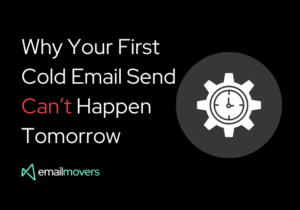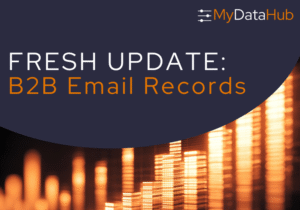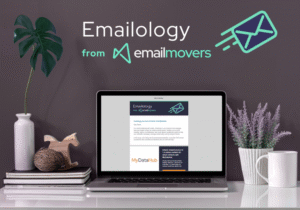Optimising your campaigns with UK email database providers involves leveraging precise audience targeting and personalised communication to enhance engagement and conversion rates. High-quality, updated email lists reduce bounce rates and improve operational efficiency. Integration with CRM systems ensures consistency in customer data, enabling tailored marketing strategies. Proper techniques for dividing audiences and tailoring messages like adjusting content based on actions & sending behaviour-specific messages, increase customer loyalty and the rate at which emails are opened. It’s essential to comply with data privacy laws like GDPR, fostering trust and transparency. Utilising advanced analytics and automation can further enhance ROI. Discover how these strategies can transform your marketing efforts.
Key Takeaways
- Choose UK email database providers offering updated, verified data to reduce bounce rates and enhance marketing campaign efficiency.
- Ensure providers offer seamless CRM integration for a unified customer view, maintaining accuracy across various marketing platforms.
- Prioritise providers with transparent pricing and positive customer reviews to ensure reliability and avoid unexpected costs.
- Use audience segmentation and personalisation strategies to boost engagement, improving open and click-through rates.
- Leverage automation and advanced analytics tools for real-time performance tracking and informed decision-making, enhancing ROI.
Understanding UK Email Databases
Understanding UK email databases is essential for businesses aiming to enhance their marketing campaigns and expand their reach. An effective email marketing strategy hinges on a well-curated email list, which forms the foundation of successful communication efforts.
Businesses must recognise the pivotal role that these databases play in crafting tailored messages that resonate with their target audience. Utilising data properly allows businesses to enhance their email campaigns. This leads to tangible outcomes from their marketing efforts.
UK email databases comprise extensive collections of contact information, which are crucial for segmenting audiences based on various demographics and behavioural patterns. Segmentation allows businesses to send personalised content, thereby increasing engagement rates and enhancing customer relationships.
This data-driven approach ensures that marketing messages are relevant to the recipients, improving the likelihood of conversion and fostering brand loyalty.
To fully harness the potential of UK email databases, businesses should collaborate with reputable email service providers. These providers offer tools and analytics that assist in monitoring campaign progress and refining strategies based on performance metrics.
With access to detailed insights, companies can adapt their tactics to align with consumer preferences and trends, thus optimising their outreach efforts.
Keeping your email list current and following the rules is very important in the changing world of online marketing. Adhering to regulations such as the General Data Protection Regulation (GDPR) is imperative to avoid legal repercussions while ensuring subscriber trust.
Choosing the Right Provider
Selecting the appropriate email database provider is a critical decision that can significantly impact the success of your marketing campaigns. A well-chosen provider can elevate your email marketing program by supplying quality email lists that align with your target audience. This, in turn, enhances the effectiveness of your email campaigns to drive higher engagement and conversion rates.
When evaluating email database providers, it is essential to consider several factors to ensure they meet your specific requirements. First, assess the quality of their email lists. High-quality data is paramount; it ensures your messages reach the right recipients, reducing bounce rates and improving overall campaign performance. Providers should offer updated and verified email addresses to maintain the integrity of your email marketing metrics.
Another critical consideration is the provider’s ability to integrate with your existing marketing systems. Seamless integration allows for efficient data management and helps streamline your email marketing program, making it easier to track and analyse campaign results. Providers that offer robust support and user-friendly platforms can significantly enhance your operational efficiency.
Additionally, transparency in pricing and terms of service is important. Evaluate providers that offer clear, competitive pricing structures without hidden fees. This ensures you can plan your budget effectively and avoid unexpected costs.
Lastly, consider the provider’s reputation and customer reviews. A proven track record of success and positive feedback from other businesses can provide valuable insights into their reliability and effectiveness.
Benefits of Targeted Marketing
Beyond selecting the right provider, leveraging targeted marketing strategies can significantly amplify the effectiveness of your email campaigns. One of the primary benefits of targeted marketing is the ability to tailor messages to specific segments of your audience, enhancing the relevance and resonance of your content. This approach aligns with email marketing best practices, where personalisation is key to capturing the attention of recipients. By sending targeted emails, you can significantly improve your email open rate, ensuring that your messages are not just seen, but engaged with.
Moreover, targeted marketing helps to drive conversions by delivering content that speaks directly to the needs and interests of your audience. When emails are crafted with precision, addressing the unique preferences of different consumer groups, they are more likely to lead to desired actions, whether that’s clicking a link, signing up for a service, or purchasing a product. This specificity fosters a deeper connection between your brand and its audience, thereby increasing the likelihood of conversion.
Email marketing automation plays a crucial role in executing targeted marketing strategies efficiently. Automation tools allow marketers to segment their audience and personalise communications at scale, ensuring that the right message reaches the right person at the optimal time. This not only saves time and resources but also enhances the overall customer experience, building brand loyalty and trust.
Audience Segmentation Techniques
Effective audience segmentation techniques are essential for maximising the impact of your email marketing campaigns. By dividing your email subscribers into smaller, more targeted groups based on specific criteria, you can tailor your messaging to better meet their needs and preferences. This approach not only enhances the relevance of your content but also significantly improves your open rate and click-through rate.
One of the most effective audience segmentation techniques involves demographic segmentation. By categorising subscribers based on age, gender, location, or income level, you can craft messages that resonate more personally with each group. This ensures that your email marketing campaigns are more likely to capture attention and encourage engagement.
Behavioural segmentation is another powerful method. By analysing how email subscribers interact with your emails—such as their purchase history, past engagement levels, or response to previous campaigns—you can tailor future communications to align with their demonstrated interests and behaviours. This technique often leads to heightened engagement and improved conversion rates.
Additionally, psychographic segmentation focuses on the lifestyle, values, and interests of your audience. By understanding what motivates your email subscribers, you can create campaigns that align with their passions and beliefs, fostering a stronger connection with your brand.
Finally, segmenting based on the subscriber’s position in the sales funnel—whether they are new leads or repeat customers—allows for more targeted messaging. This ensures that your email subscribers receive content that is relevant to their current journey with your brand, thereby enhancing both open rates and click-through rates.
Incorporating these audience segmentation techniques into your email marketing strategy will undoubtedly lead to more successful campaigns and a more engaged subscriber base.
Personalising Your Campaigns
Building on the insights gained from effective audience segmentation, personalising your email campaigns can significantly enhance engagement and conversion rates. Personalisation in email marketing campaigns involves tailoring content to meet the specific needs and preferences of individual recipients. This strategy not only improves the relevance of your messages but also strengthens customer relationships, fostering loyalty and trust.
To optimise email personalisation, consider integrating dynamic content, which changes based on the recipient’s characteristics or behaviours. This could include personalised product recommendations, location-specific offers, or individualised subject lines, all of which can boost email deliverability and open rates. By leveraging data obtained from UK email database providers, marketers can refine their messaging, ensuring it resonates with each target segment.
Moreover, personalisation can extend beyond simple name inclusion. Utilise behavioural data to craft emails that reflect past interactions with your brand. For example, sending a tailored follow-up email based on an abandoned cart can increase conversion rates by reminding customers of their interest while offering an incentive to complete the purchase.
Additionally, segmenting your audience based on demographic, geographic, and psychographic data allows for more precise targeting. This approach not only maximises the impact of your email marketing campaign but also enhances the overall customer experience, leading to improved retention rates.
Ultimately, personalising your campaigns is a critical component of optimising email marketing efforts. By aligning content with the unique preferences of your audience, you can achieve higher engagement, increased conversion rates, and a stronger brand connection, ensuring your messages are not only received but also appreciated.
Data Privacy and Compliance
In today’s digital landscape, ensuring data privacy and compliance is paramount for email marketers who wish to maintain trust and avoid legal repercussions. With the increasing reliance on email marketing, it is crucial for businesses to adhere to data privacy regulations such as the General Data Protection Regulation (GDPR) and the UK’s Data Protection Act. These regulations mandate that companies collect, store, and use personal data responsibly, thereby safeguarding consumer rights and fostering trust.
To achieve compliance in email marketing, organisations must implement robust data privacy measures. This includes obtaining explicit consent from recipients before sending marketing communications. Transparency regarding data collection and usage is essential, and marketers must clearly inform subscribers about how their data will be handled.
Moreover, businesses must provide easy options for users to opt-out or withdraw consent at any time.
Marketing automation tools can efficiently manage these compliance requirements. By automating processes such as consent management and data handling, businesses can reduce the risk of human error and ensure adherence to privacy laws. Additionally, email authentication protocols like SPF, DKIM, and DMARC play a vital role in securing email communications, preventing unauthorised access, and protecting sensitive information.
Furthermore, partnering with reputable UK email database providers can significantly aid in maintaining compliance. These providers often offer databases that are already compliant with relevant regulations, reducing the burden on businesses to verify data integrity.
Analysing Campaign Performance
The backbone of any successful email marketing strategy lies in the thorough analysis of campaign performance. This crucial step allows businesses to refine their email campaign optimisation processes, ensuring that their marketing strategies resonate with their target audience.
By leveraging insights from campaign performance data, businesses can enhance their email marketing efforts, driving engagement and ultimately boosting conversion rates.
Email database providers play a pivotal role in this analytical process. These providers offer sophisticated tools and platforms to track key performance indicators (KPIs) such as open rates, click-through rates, and conversion rates. By doing so, businesses can identify areas that need improvement and fine-tune their strategies accordingly.
To efficiently analyse campaign performance, consider the following aspects:
- Segmentation Analysis: Understanding which segments of your audience are most responsive can help tailor your messages more effectively. This level of personalisation can significantly enhance the impact of email marketing efforts.
- A/B Testing: Conducting A/B tests on different elements of your emails, such as subject lines or call-to-action buttons, provides valuable insights into what resonates best with your audience. This data-driven approach is essential for email campaign optimisation.
- Engagement Metrics: Monitoring metrics beyond basic open and click rates, such as time spent on the email or actions taken post-click, offers a more comprehensive view of campaign performance. These deeper insights enable a more strategic approach to subsequent campaigns.
Analysing campaign performance is not merely about numbers; it’s about understanding the story behind the data.
Enhancing ROI With Email Data
While understanding campaign performance forms the foundation of effective email marketing, the real measure of success lies in maximising return on investment (ROI) through the intelligent use of email data. Email marketing is one of the most cost-effective strategies businesses can employ, yet its success hinges on how well you leverage the data at your disposal. By utilising targeted email databases, businesses can optimise their email campaigns to deliver content that resonates with their audience, thus enhancing engagement and conversion rates.
A critical component in improving ROI is segmentation. By analysing customer data, marketers can identify specific demographics or behaviours to tailor messages accordingly. This targeted approach not only increases the effectiveness of your email campaigns but also ensures that recipients receive information that is relevant to them, thereby boosting open and click-through rates. Employing sophisticated segmentation tactics, therefore, is paramount in refining audience engagement and achieving higher returns.
Moreover, integrating email data with marketing platforms allows for the automation of personalised content delivery, ensuring consistent communication with your audience. Such automation can significantly reduce operational costs while maintaining a high level of personalisation, ultimately leading to improved ROI.
Additionally, leveraging email data helps in fine-tuning marketing strategies by providing insights into customer preferences and behaviours. These insights enable businesses to make informed decisions, optimising campaigns to maximise impact. By continually analysing and adjusting strategies based on data-driven insights, marketers can ensure their campaigns remain effective and relevant.
Integrating Databases With CRM
Effective email marketing necessitates the seamless integration of email databases with Customer Relationship Management (CRM) systems, enabling businesses to achieve a unified view of their customer interactions. This integration is pivotal for streamlining processes, enhancing personalisation, and optimising email marketing campaigns. By merging email databases with CRM, companies can ensure that all email addresses and subscriber data are accurately captured and utilised, leading to more targeted and effective communication strategies.
Integrating an email database with a CRM system offers several key benefits. First, it facilitates the synchronisation of data across platforms, eliminating the risk of data discrepancies and ensuring that the information used in marketing efforts is current and accurate. This alignment allows for the creation of more personalised and engaging content tailored to the specific needs and preferences of subscribers.
Secondly, such integration empowers businesses to automate many aspects of their email marketing campaigns. Automated workflows can be established to trigger emails based on subscriber behaviour, such as recent purchases or website visits, thus maintaining a consistent and relevant engagement with the audience.
Lastly, a well-integrated CRM and email database provides valuable insights through advanced analytics tools. These insights enable marketers to track campaign performance and subscriber interactions, offering a comprehensive understanding of what resonates with the audience.
- Data synchronisation: Ensures consistency across platforms.
- Automation: Triggers personalised emails based on subscriber behaviour.
- Analytics: Provides insights into campaign performance and subscriber engagement.
Optimising your email campaigns with UK email database providers is a powerful strategy to drive higher engagement, improve conversion rates, and maximise ROI. By choosing high-quality, up-to-date databases and leveraging advanced segmentation, personalisation, and automation, businesses can ensure that their messages reach the right audience with relevant content. Additionally, staying compliant with data privacy regulations like GDPR fosters trust and transparency with subscribers. Integrating email databases with CRM systems further enhances targeting and campaign effectiveness, providing valuable insights to continually refine and optimise your marketing efforts.
Get In Touch With Us!
Call us on 01723 800030
Or use the form here










